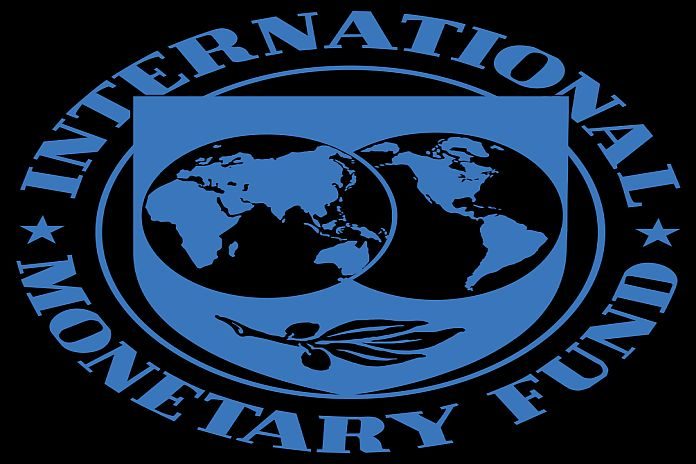GEORGETOWN, Guyana – On August 30, 2019, the Executive Board of the International Monetary Fund (IMF) concluded the Article IV consultation with Guyana.
Guyana’s economic growth strengthened in 2018 with broad-based expansion across all major sectors. Real GDP grew by 4.1 percent, led by construction and services sectors, up from 2.1 percent in 2017.
Inflation remained low at 1.6 percent at end-2018. The external current account deficit rose to 17.5 percent of GDP, from 6.8 percent in 2017, due to weaker exports and higher imports related to oil production, which was largely financed by foreign direct investment (FDI) in the petroleum sector. Public finances improved in 2018 as the central government deficit came in at 3.5 percent of GDP, lower than the budgeted 5.4 percent of GDP.
The medium-term prospects are very favorable as oil production is on schedule to begin in early 2020. Economic growth is projected at 4.4 percent in 2019, extending the broad-based expansion across all major sectors. The current account deficit is estimated to rise to 22.7 percent of GDP on the back of higher imports related to oil production, which will be largely financed by Foreign Direct Investment (FDI) in the petroleum sector.
The commencement of oil production in 2020 will substantially improve Guyana’s medium- and long-term outlook. The oil sector is projected to grow rapidly, accounting for around 40 percent of GDP by 2024 and supporting additional fiscal spending annually of 6.5 percent of non-oil GDP on average over the medium term, which will help meet critical social and infrastructure needs. Public debt and the external current account deficit are projected to decline steadily following the onset of oil production.
Executive Board Assessment
Directors welcomed Guyana’s broad‑based economic expansion in recent years underpinned by prudent macroeconomic policies. Directors noted that the medium‑term outlook is favorable but highlighted that the commencement of the oil production presents both opportunities and challenges. Directors emphasized that to ensure the effective use of windfall revenues, policies should focus on reducing macroeconomic vulnerabilities, addressing structural weaknesses, boosting inclusive growth, and promoting intergenerational equity.
Directors welcomed the authorities’ Natural Resource Fund (NRF) legislation for managing Guyana’s oil wealth and emphasized the need to complement it with a fiscal responsibility framework to avoid fiscal deficits. They commended that the NRF’s framework aims to save some of the resource income for future generations and contain the pickup in public spending. To meet these objectives, Directors called for the authorities to constrain the annual non‑oil deficit to not exceed the expected transfer from the NRF. This rule could be phased in over the next three years to allow a smooth widening of the non‑oil deficit (in relation to non‑oil GDP).
Directors agreed that monetary policy should gradually revert to a neutral stance to contain potential inflationary pressure as public spending increases, economic growth strengthens, and credit expands. Over the medium‑term, developing the infrastructure for greater exchange rate flexibility within the monetary policy framework would help sustain healthy economic growth while maintaining price stability and facilitating adjustment to oil price and other external shocks.
Directors noted the continued progress in strengthening transparency and governance and encouraged sustained efforts to implement the recommendations of the 2019 Extractive Industries Transparency Initiative Report, which would promote effective and transparent management of the oil wealth. They also supported strengthening anti‑corruption frameworks, including by facilitating the work of the Integrity Commission, to improve governance, support investor confidence and promote growth. At the same time, addressing institutional capacity weaknesses would enable decisive implementation of policy actions to further strengthen governance.
Directors noted that it is important to further improve the quality, efficiency, and transparency of public financial management. They recommended addressing the shortcomings identified by the 2017 Public Investment Management Assessment (PIMA) and expenditure review before public investment is significantly scaled‑up with oil revenues.
Directors recommended an asset quality review to assess the credit quality of banks with high nonperforming loans. They welcomed the progress made in implementing the 2016 FSAP recommendations and encouraged completing the remaining ones. Directors noted the authorities’ progress in strengthening the AML/CFT framework and called for further efforts in this regard.
Directors encouraged the authorities to use the opportunity presented by oil revenues to undertake structural reforms to support economic diversification, tackle skilled labor shortages, and achieve inclusive and equitable growth. Priority should be given to address infrastructure bottlenecks and upgrade the education system. In addition, promoting more flexible working arrangements could help increase female labor participation.
Directors underscored the importance of improving the business environment and enhancing competitiveness. They also recommended putting more efforts into developing climate‑resilient infrastructure networks.
The 2019 article IV consultation press release; staff report and statement by the executive director for Guyana said,” This presents a momentous opportunity to boost inclusive growth by addressing human development needs and infrastructure gaps, provided the oil wealth is managed well.”





